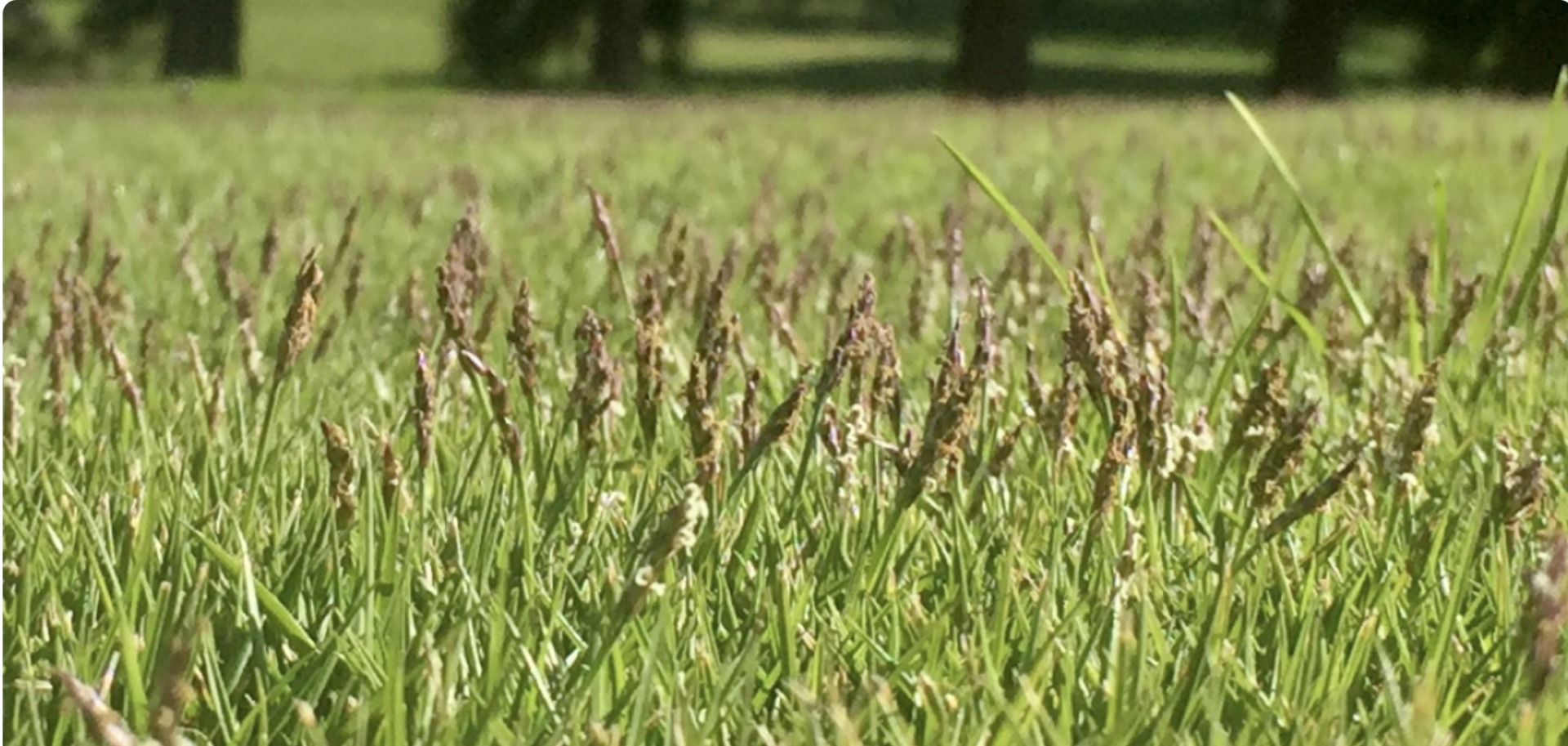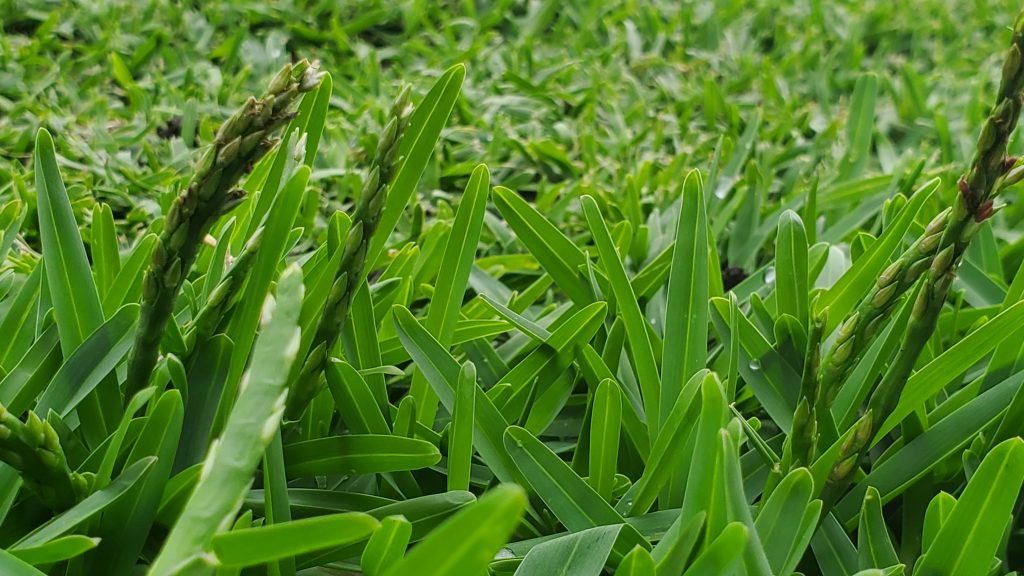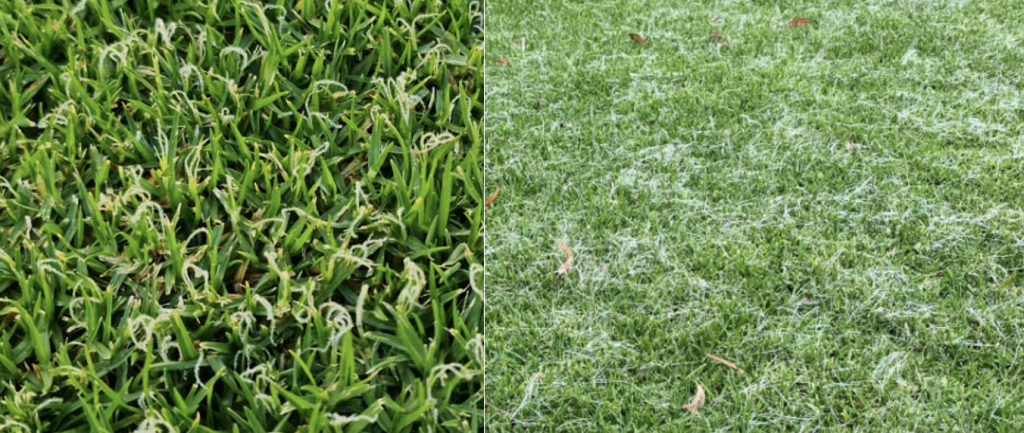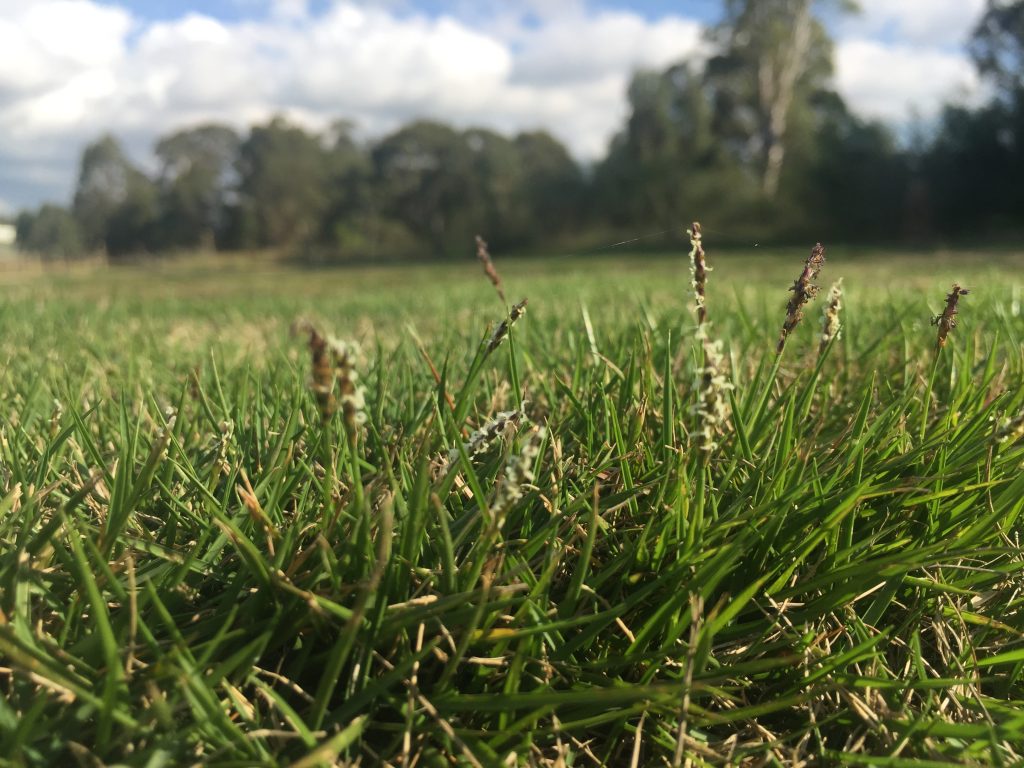Identifying Lawn Seed Heads

10 November 2022
As each turf type has a different seed head, it can sometimes be difficult to know what a seed head is and what is a weed. In this blog, we look at what seed heads look like in different grass types, why they grow, and how to help stop them from growing.
They will usually only appear in lawns for a few weeks a year, usually when the temperatures are changing. Although they do have a tough feel underfoot, they won’t cause any damage to your lawn.
Buffalo

Buffalo seed heads will grow from the runner, also known as stolon. The seed head will be thicker with exposed seeds and will feel tough. They also have a very similar appearance to asparagus. They usually grow at the same height or just above your lawns leaf height.
Most buffalo seeds are sterile. This means that the grass cannot be spread by its seed.
Couch

Couch seed heads too can be mistaken as weeds. They can be green to purple in colour and will grow on a stem above the grass level. At the top of the stem, there will be a cluster of spikes (usually two to six spikes) that hold the seeds. These spikes are around two to five cm long.
Most turf sold as a solid turf variety like TifTuf Hybrid Bermuda and Nullarbor Couch will produce a sterile seed head that cannot spread.
Kikuyu

Kikuyu’s grows pollen sacs that extend above the grass leaf on white filaments, and are often mistaken as a web. These filaments will grow in a cluster of 2-4 flower spikelets. Kikuyu seeds are produced within the leaf sheath, and are not visible.
Zoysia

Zoysia seed heads will either be white or purple in colour. They will feel ‘tough’ to touch and will come from one stem with small flowers that hold the seeds.
Why has my lawn gone to seed?
Seed heads start to grow for 2 main reasons.
The first being a change in seasons. Seasonal changes can cause a bit of stress on the lawn. In most varieties this will occur once or twice a year.
The second is that your lawn is lacking something. This will usually be water or nutrients
How to help stop seed heads
If your lawn has gone to seed, in most cases the grass will stop producing seeds over the coming weeks. The best way to help stop your lawn from going to seed is through regular mowing, watering, and fertilising.
When mowing, only remove one third of the leaf blade off at once to help reduce plant stress. In the warmer months, you may be required to mow at least once a week depending on your climate and turf variety. Watering your lawn less frequently for longer is best. For fertilising, a slow-release granular fertiliser that has a good ratio of NPK (Nitrogen, Phosphorus, and Potassium) like Lawn Solutions Premium Fertiliser is ideal to help encourage strong growth for a healthy lawn.
A plant growth regulator (PGR) like Primo Maxx will limit your lawns vertical growth and can help reduce the number of seed heads that your lawn produces. Regular mowing, twice a week, and the use of a PGR at full rates will minimise the seed head from flowering.
pH test
If your lawns seed heads don’t go away after a few weeks after increasing watering, fertilising, regular mowing, and aerating, it is worth doing a soil pH test.
As always, if you have any more questions please don’t hesitate to contact us for free expert advice on 1800ALLTURF (1800255873) or 07 5543 8304.
WOULD YOU LIKE MORE INFORMATION?
Contact us for expert advice, or come & say hi at our office in Tamborine!




